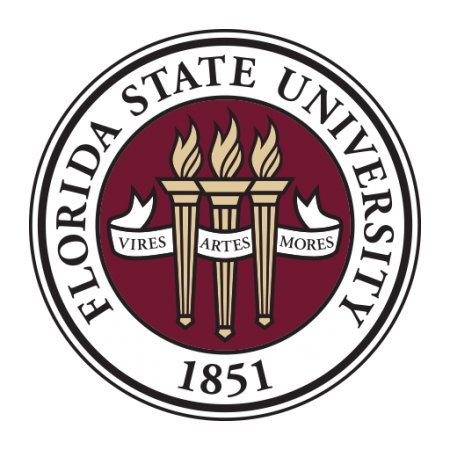
As Florida’s schools emphasize science and mathematics, Florida State University is leading efforts to provide K-12 teachers the support they need to succeed in the classroom.
FSU’s Florida Center for Research in Science, Technology, Engineering and Mathematics (FCR–STEM) and its partners are building FCR–STEMLearn with $14.3 million in new grants from the Florida Department of Education.
“FCR-STEMLearn is a comprehensive program to deepen teachers’ knowledge of mathematics and science, to establish collaborative lesson study teams at their schools and to enhance their capacity to teach challenging courses in these critical fields,” said Rabieh Razzouk, FCR–STEM’s acting director and the principal investigator on the partnership. “This is part of Florida State’s and FCR–STEM’s commitment to improving K-12 education using evidence-based research.”
The new FCR–STEMLearn will make training available to teachers through intensive two-week professional-development summer institutes, provide follow-up support to teachers during the academic year and generate new instructional resources, available to teachers at any time through the CPALMS online portal.
CPALMS is an online toolbox of information, vetted resources and interactive tools that helps educators effectively implement teaching standards. Developed by FCR–STEM, CPALMS is Florida’s official source for standards information and course descriptions.
Florida Commissioner of Education Pam Stewart said the initiative would give Florida’s math and science teachers “an unprecedented level of support.”
“More Florida students are enrolled in STEM courses than ever before,” Stewart said. “It is critical that we provide teachers the high-quality support and training they need to ensure students leave our schools with math and science skills that will help them obtain well-paying and much needed careers. I am pleased that the Department of Education and FSU can offer these tools and resources to help teachers give their students the best chance at success in college, career and life.”
During the two-week summer institutes, teachers will work with experts — scientists and mathematicians in Florida State’s College of Arts and Sciences — to improve their content knowledge. Then the teachers will collaborate to apply that knowledge as they develop model lessons that can be shared with math and science teachers statewide via the CPALMS portal.
“This combination — enhanced knowledge and curriculum development — is a key strength of FCR–STEMLearn,” Razzouk said. “Teachers not only learn more about their subject but also come away with lesson plans they can use to bring that new knowledge into the classroom to help their students learn.”
FCR–STEMLearn supports the state’s economic goals tied to education.
“Florida’s schools must make gains in STEM fields if our state is to remain competitive in the international marketplace,” Razzouk said. “FCR–STEMLearn draws on proven research on how teachers can link concepts in math and science to real world problems.”
In addition to offering the two-week summer training, FCR–STEMLearn will promote development of lesson study teams, a concept where teachers work together to determine goals, create lesson plans to reach those goals and collaborate to refine their teaching effectiveness.
“Teachers typically work alone, and this can limit their growth and development,” Razzouk said. “Collaboration through lesson study teams ends this isolation and brings teachers together to address common concerns, to share best practices and to work toward continuous improvement.”
Florida State’s FCR–STEM will draw on the expertise of a number of university and school district partners: Florida International University, Mills College, the Panhandle Area Educational Consortium, the North East Florida Education Consortium and 38 Florida school districts. Working together, the partners will focus FCR–STEMLearn on areas of greatest concern in math education and the sciences.
The Florida Center for Research in Science, Technology, Engineering and Mathematics is a multi-disciplinary research center created by the Florida Legislature to improve teaching and learning in K-12 science, technology, engineering and math and to prepare students for higher education and STEM careers in the 21stcentury. FCR–STEM is part of Florida State University’s Learning Systems Institute.
In addition to Florida State University Schools, districts in the following Florida counties are taking part in FCR–STEMLearn: Baker, Bay, Bradford, Brevard, Broward, Calhoun, Columbia, Citrus, Dixie, Escambia, Flagler, Franklin, Gilchrist, Gulf, Gadsden, Hamilton, Holmes, Jackson, Jefferson, Lafayette, Leon, Levy, Liberty, Madison, Miami-Dade, Nassau, Orange, Polk, Putnam, Seminole, Sumter, Suwannee, Taylor, Union, Volusia, Wakulla, Walton and Washington.



